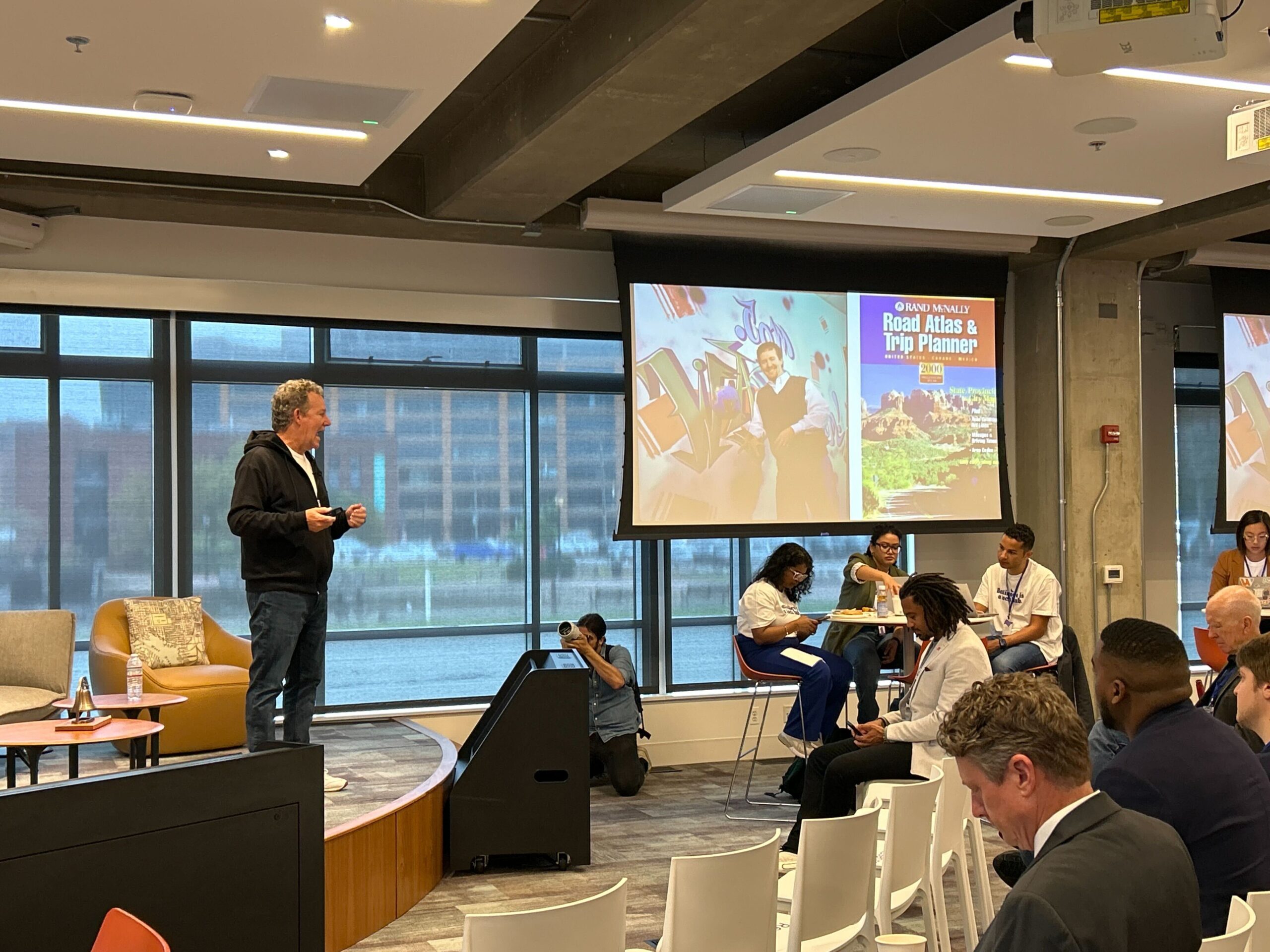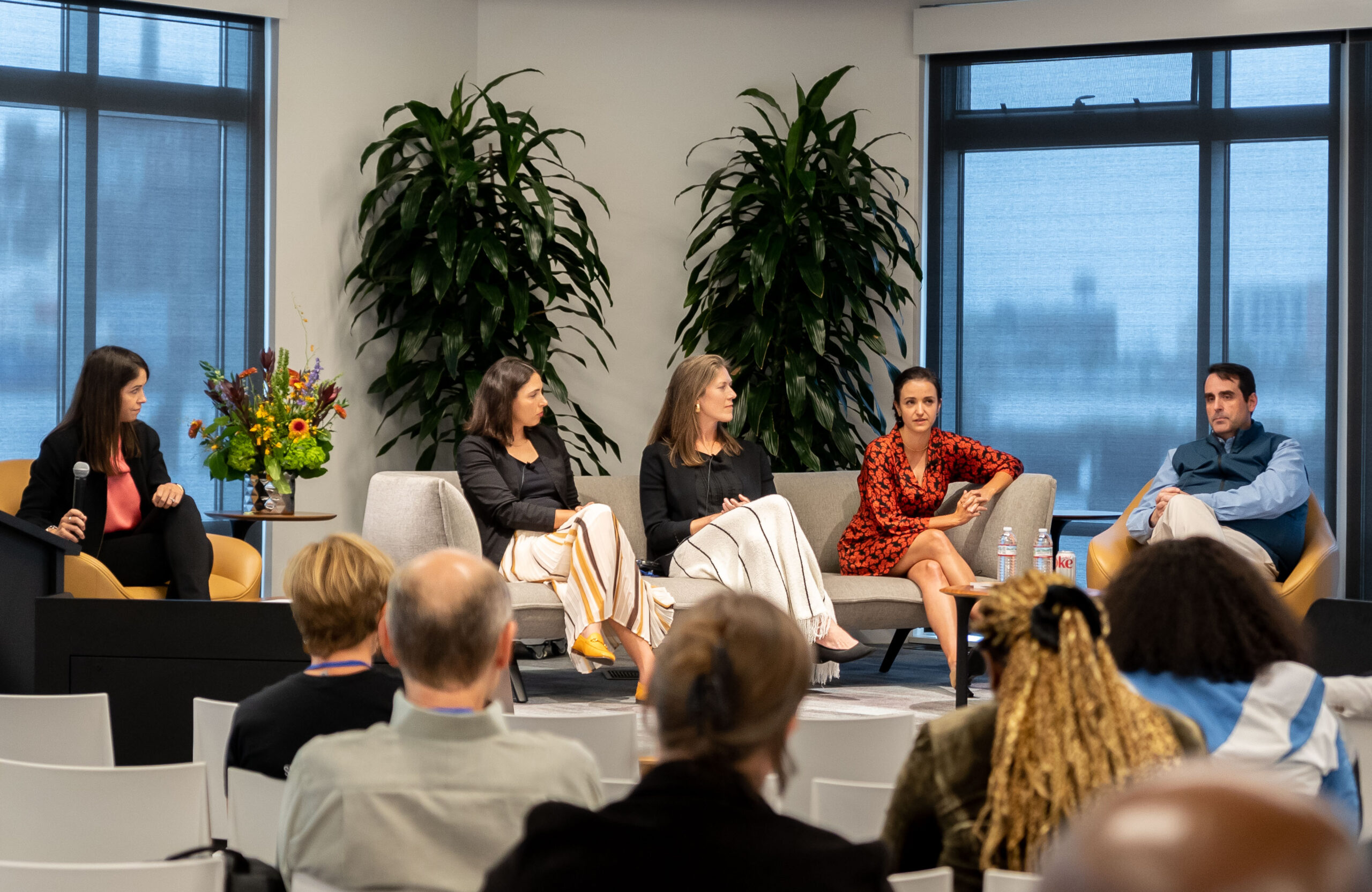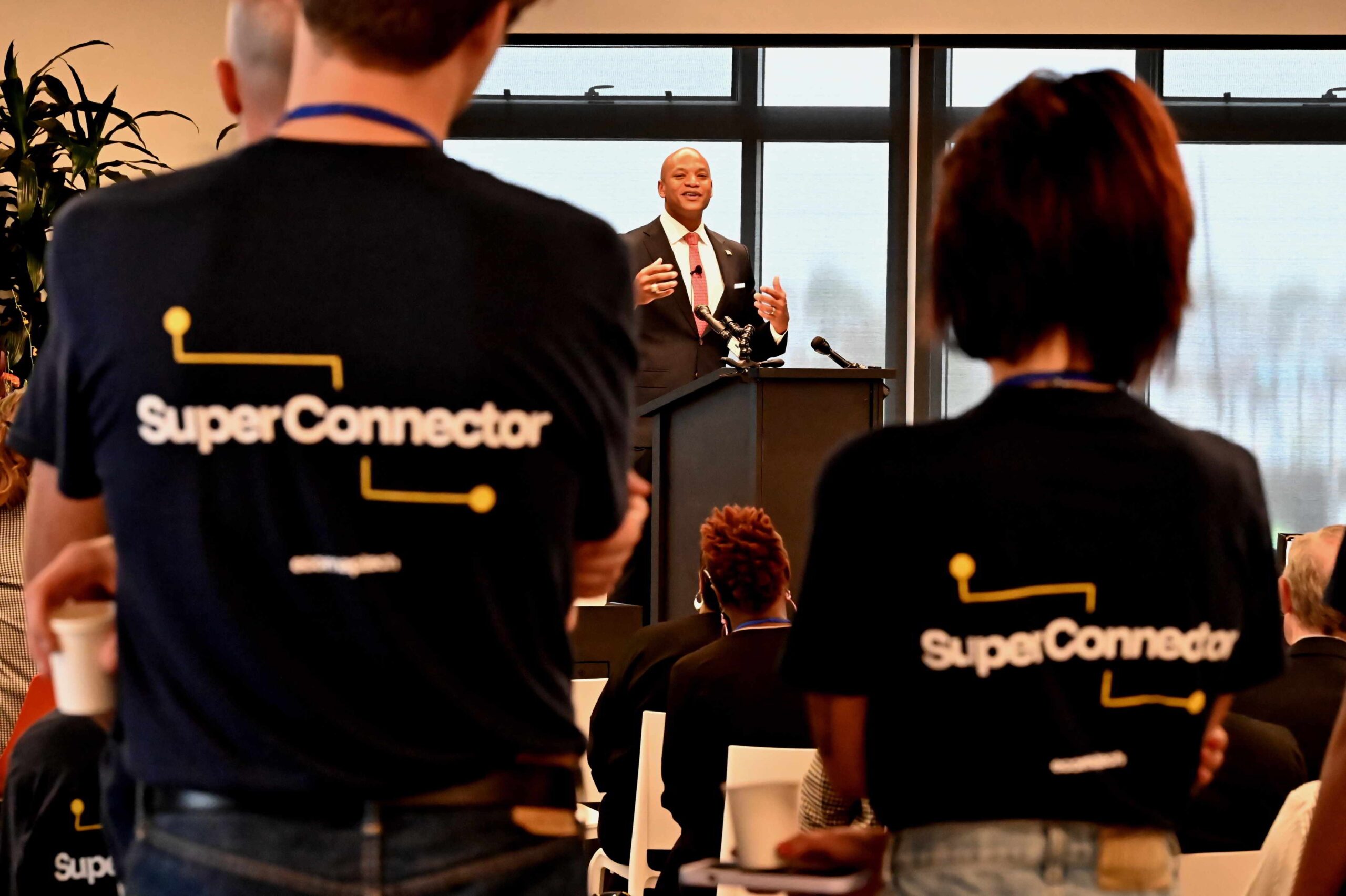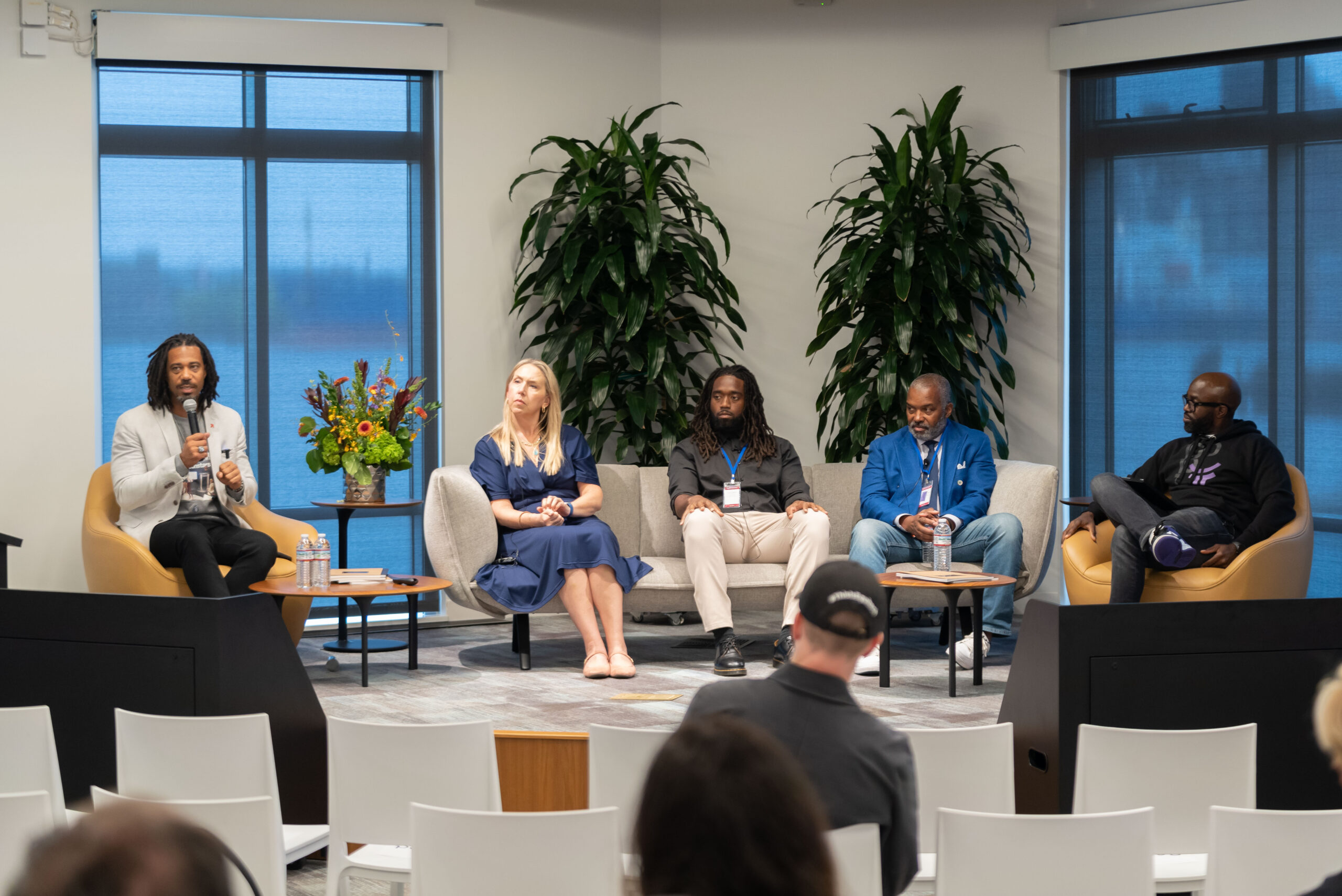Last month, during a rainy few days in Baltimore’s Fells Point neighborhood, the energy inside investment management firm Brown Advisory’s offices was electric. But the foggy weather outside recalled a year ago, when the city’s tech community endured a devastating loss.
EcoMap Technologies’ inaugural SuperConnect conference brought together ecosystem builders, funders and entrepreneurial support organizations to share lessons, highlight experiences and advance the work of creating equitable innovation scenes around the country.
In many ways, SuperConnect embodied the spirit and mind of Pava LaPere, the startup’s late cofounder and CEO whose sudden passing a year before the conference’s start was addressed in many of the speakers’ remarks. From the convening’s name and ethos to the lessons shared and, LaPere’s passion for Baltimore and supporting fellow founders underscored the entire day-and-a-half of programming.
Here are just some of the highlights from the inaugural conference.

Building power through people
If it wasn’t obvious by name, this conference focused on the importance of so-called “super connectors’” work, and the theme came up repeatedly throughout. Chris Heivly, founder of MapQuest and the program’s first speaker, kicked things off by emphasizing the power of a network and mentorship, and a human-centered “give first” mentality.
“People are nodes in a network, not organizations,” the author of “Build The Fort” said in response to a question about re-engaging institutions amid funding pullbacks. “Organizations are a part of you, not the other way.”
Jamie McDonald, founder and former CEO of UpSurge Baltimore, built on this point by reiterating the crucial role those who link people across networks and communities play. She also referenced how LaPere inspired this value among others.
“Ecosystems function a lot like movements,” McDonald said, “and movements depend on the power of super connectors.”
‘Sharing sugar’ – the neighborly approach
John Brothers, president of the T. Rowe Price Foundation, introduced the analogy of “sharing sugar” during a panel on ecosystem funding. Instead of repeatedly settling into a competitive mindset all too common in our cities and communities, Brothers highlighted a collaborative approach to working with other ecosystem participants.

Brothers’ fellow panelists — including Brittany Sickler, an ecosystem development leader with the US Small Business Association — adopted the phrase while urging audience members to focus on cooperation. The co-panelists collectively built on the neighbor analogy: While sharing resources may appear to leave an individual with a little less, it enables them to share in, and have access to, “the larger pie.”
Acting on what makes your city special
Several speakers underscored the importance of leaning into local assets when designing innovation strategies. Rather than trying to emulate other cities, regional leaders are finding ways to make entrepreneurship more accessible by leveraging the city’s unique resources. For the conference’s highest-profile speaker, that means intentionally supporting startups in their earliest stages.
“While I understand the role of the large companies and large corporations, I would rather bet big on small,” said Maryland Gov. Wes Moore, who also addressed the legislation in LaPere’s name that earmarks funding for university-based entrepreneurs.

Building economies for — and with — everyone
One of the most resounding lessons was the undeniable value of diversity — across race, culture, age, life experience, location and neurocognitive function — in creating more economic opportunities.
Jeff Cherry leads the Novella Center for Entrepreneurship, which operates the longstanding Conscious Venture Lab accelerator (now in its 12th cohort), and the investment vehicle Conscious Venture Partners. He noted that his work’s focus on underrepresented entrepreneurs and social impact-driven ideas offers a competitive advantage, as it opens up opportunities to tap into markets and needs frequently ignored by mainstream investors.
“As an investor, I have asymmetric information because other investors don’t go into those communities, they don’t see those problem spaces,” said Cherry.
But the opportunity isn’t just financial: With economic strength comes huge and enduring social benefits, other speakers noted.
“How do we connect those people with the big hearts, and how do we make them rich?” said Delali Dzirasa, CEO of prominent local SaaS firm Fearless. “Because they’re the ones who will invest heavily back.” “Baltimore is a great use case because we have all these social problems and all these experts, and all these connectors,” added Anthony Watters, head of the Social Innovation Lab at Johns Hopkins University’s Pava Center. “Getting these folks rich will make all these issues better. So how do we connect them to the right customers? Because oftentimes, they’re creating solutions for people who have very low levels of resources. … The hustle is there, but there is a gap between them and the ecosystems where they can jump into wealth creation.”

The conference concluded with palpable optimism. Attendees exchanged contact info, speakers stayed behind and answered straggling questions, and colleagues said final goodbyes before running off to catch flights. The EcoMap team exchanged teary, congratulatory hugs.
After 30 hours of hearing about ecosystems, I couldn’t help but feel that the power in the room lay in the relationships between the people in the room.
People throughout Baltimore, a city often overshadowed by larger neighbors and the lasting reputation of “The Wire,” is building its own narrative — one that centers inclusion, collaboration and interdependence.
“What’s the story of Baltimore we want to tell the world overall?” former UpSurge CEO McDonald asked.
Moore has an idea: “We are witnessing a Baltimore renaissance. … If we stay close, and we stay connected, we will win.”
This article, which covers a conference at which Technical.ly CEO Chris Wink spoke, mentions UpSurge Baltimore and T. Rowe Price, both of which previously employed the author of the piece. It also mentions Fearless, a Technical.ly client. Neither relationship has any impact on this report.







